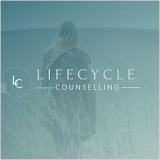Find a Therapist near Toronto, ON
| Prev | Next |
Find a Therapist in Toronto with GoodTherapy
It’s normal to experience mental health issues and relationship problems. Talking to a licensed therapist can help. Therapy can teach you more about yourself and your mental health concerns in a healing way. Many therapies are evidence-based and have been proven effective.
Since 2007, GoodTherapy has helped people like you connect with ethical, compassionate counselors and therapists. The therapists listed above, who practice therapy in Toronto, are trained to protect client confidentiality and privacy. In keeping with our high membership standards, these mental health professionals are also committed to eliminating the stigma that keeps many people from seeking help.
If you are looking for a specific type of therapist, you can search for marriage or couples counseling in Toronto or find a child psychologist or family therapist in Toronto. You can also connect with Toronto therapists who specialize in treating anxiety or depression. In addition, some therapists provide group therapy, which is typically a therapist-led session with multiple people.
Beliefs about how much therapy costs may deter some people from finding a therapist. It’s a good idea to contact therapists you’re interested in and ask about insurance, sliding-scale fees, payment plans, and other options to stay within your budget.
Rest assured there are qualified therapists in Toronto who can treat a variety of concerns, including family conflict, relationship issues, anxiety, or depression. With our directory, the right therapist is easy to find.
List Your Practice on GoodTherapy
Are you a therapist or mental health professional looking for new ways to get referrals and market your practice in Toronto? Keeping up to date with professional requirements and increasing your online presence are just two of the many benefits of joining GoodTherapy. Start connecting with clients and earning online continuing education credits today!
Mental Health Statistics for Toronto
Opioid abuse is a serious concern in the city of Toronto. The Toronto Paramedic Service sees an average of 62 non-fatal and 3 fatal opioid overdoses per week. Annual deaths from opioid toxicity tripled from 104 in 2013 to 308 in 2017. Most of these deaths (94%) were classified as accidental, while 5% were labeled as suicide.
Transit-related suicide is also a concern in Toronto. Each year an average of 27 individuals attempt suicide in Toronto’s subway system. Between 2004 and 2015, 125 Toronto residents died from suicide on local bridges. Researchers have seen a 93% drop in suicide deaths after implementing nets and barriers on bridges. Toronto officials are considering similar strategies to reduce the number of subway suicides.
References:
- Moore, O. (2019, February 5). As transit suicide attempts rise in Toronto, the TTC looks for ways to save lives. The Globe and Mail. Retrieved from https://www.theglobeandmail.com/canada/toronto/article-ttc-to-overhaul-anti-suicide-efforts
- Pelley, L. (2018, May 14). 10 people die by suicide from Toronto bridges every year, but city aims to prevent that. CBC News. Retrieved from https://www.cbc.ca/news/canada/toronto/toronto-suicide-prevention-bridge-barriers-1.4662464
- Toronto overdose information system. (2019). Retrieved from https://www.toronto.ca/community-people/health-wellness-care/health-inspections-monitoring/toronto-overdose-information-system









